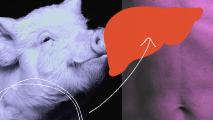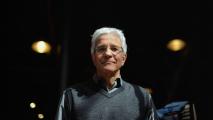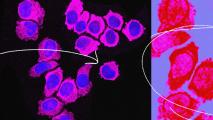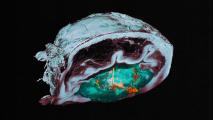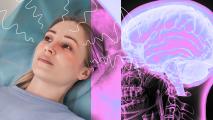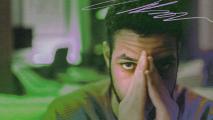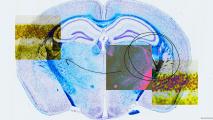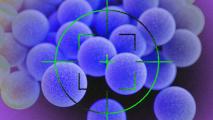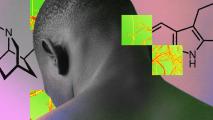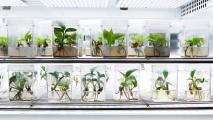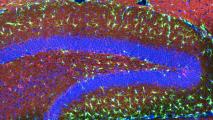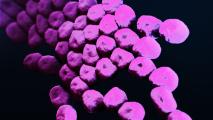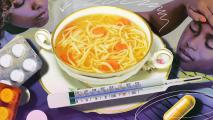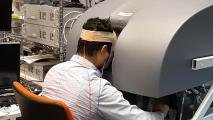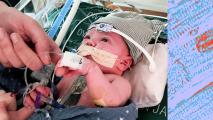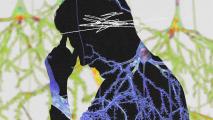
Biotech
Human history has been all but defined by death and disease, plague and pandemic. Advancements in 20th century medicine changed all of that. Now advancements in 21st century medicine promise to go even further. Could we bring about an end to disease? Reverse aging? Give hearing to the deaf and sight to the blind? The answer may be yes. And soon.
More
Three ways your environment affects your intelligence
These examples underscore the importance of environmental regulation and policies; otherwise, we might just be throwing away our intelligence.
DeepMind’s AI could accelerate drug discovery
A new study suggests that AlphaFold, DeepMind’s AI tool for predicting protein structures, could be useful for drug discovery after all.
Pig liver filters blood outside a person’s body for 72 hours
A gene-edited pig liver that filtered the blood of a person who was brain dead for 72 hours could one day help people with liver failure.
“Resilience”: How a genocide scholar faces history’s darkest moments
Genocide historian Omer Bartov says studying his particularly challenging subject has made him more mentally resilient.
Immune cells linked to allergies can kill cancer
The newly discovered cancer-killing abilities of a type of immune cell linked to allergies suggests it could be a new immunotherapy.
Urine-propelled nanobots shrink bladder tumors by 90% in animals
Tiny, radioactive nanobots propelled by urine shrank bladder tumors by 90% in mice, suggesting a new way to target the disease.
Ultrasound waves help Alzheimer’s drug get into the brain
Beaming focused ultrasound waves into the heads of Alzheimer’s patients helped a drug bypass the blood-brain barrier.
Engineers develop a vibrating, ingestible capsule that might help treat obesity
MIT engineers designed an ingestible capsule that vibrates within the stomach, creating an illusory sense of fullness and reducing appetite.
Are anxiety and depression social problems or chemical disorders?
As antidepressants will soon be a $16B industry, the chemical imbalance theory suits business interests better than health interests.
This “supermaterial” created a transparent brain implant
An AI-powered transparent brain implant made of the supermaterial graphene can predict activity below the brain’s surface.
Revamped CRISPR restores vision in blind mice
A new delivery system for prime editing could be the key to using the tech to treat genetic disorders in people.
Using AI, MIT researchers identify a new class of antibiotic candidates
Using a type of artificial intelligence, MIT researchers have discovered a class of compounds that can kill drug-resistant bacteria.
Psychoactive drug ibogaine helps veterans with TBI
A small study found that one dose of ibogaine could reduce the symptoms of a traumatic brain injury (TBI) for military vets.
Bioengineers design a new plant to purify air faster than nature
Neoplants has bioengineered a pothos plant that removes 30 times more pollutants from the air than a regular houseplant.
How a mutation in microglia elevates Alzheimer’s risk
A study finds that microglia with mutant TREM2 protein reduce brain circuit connections, promote inflammation, and contribute to Alzheimer’s.
Superbug-killing antibiotic is now in human trials
A promising new antibiotic that kills a superbug resistant to nearly all available drugs is now being tested in people.
Nutrition professor answers: Does chicken soup really help when you’re sick?
Is chicken soup just a comforting placebo, providing psychological benefit while we’re sick, without an actual therapeutic effect?
Brain stimulation could boost learning
Noninvasive brain stimulation while a person learns a new task in VR can improve their performance in the “real world.”
Toddler thriving after world’s first partial heart transplant
A toddler born with faulty heart valves is thriving nearly two years after undergoing the world’s first partial heart transplant.
How does Alzheimer’s disease erode memory? New findings on risk gene offer insights
The strongest genetic predictor of Alzheimer’s disease is a variant of a gene called apolipoprotein E. Researchers are discovering why.
Get inspired with the most innovative stories shaping the world around us.















